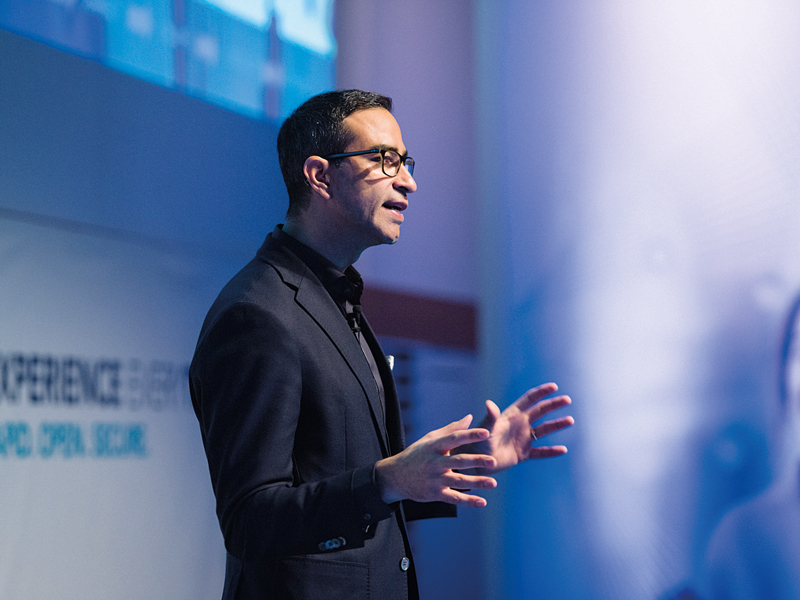How smart data can safeguard the planet
For 50 years, Software AG has delivered sustainable technology to organisations around the world. Recognising the challenges created by climate change, it’s important to help customers find ways to turn their data into a resource that promotes sustainability

No single company can provide a perfect one-size-fits-all solution to every digital requirement, but a diverse IoT network can go a long way and the potential for industry collaboration is enormous
One of the major dilemmas facing the world today is how the West can reduce its carbon footprint to offset the developing world’s industrialisation and increased carbon footprint. Digitalisation could provide some of the answers. Through the Internet of Things (IoT), digitalisation gives organisations the ability to collect valuable data from anywhere and in real time. This data can be used to make better-informed decisions and control processes, which in turn can minimise resource usage or waste.
The IoT delivers smarter, incremental solutions, as opposed to a ‘big bang’ approach to environmental change, where industries are expected to make sweeping changes overnight. An example of this is the development of the hybrid electric car – something being driven incrementally by industry, politics and, crucially, the market. In terms of sustainability, I’m not strictly talking about the engine: the data from devices like cars provides valuable information about how it is driven, in what conditions, its maintenance requirements, its consumption, its design, live traffic and alternate route information – multiple factors that can help minimise environmental impact. For example, by 2021, more than 5,000 London buses will be fitted with STW Technic’s TC1 Telematics Controller to monitor and analyse bus emissions in real time, providing valuable data on carbon emissions for future study and action. This could have a major impact in the city, which recently introduced ultra-low emission zones to improve air quality for its eight million residents.
Water management is another example of how to reduce resource usage and wastage. In England and Wales, 3.3 billion litres of water are lost due to leaky pipes every 24 hours – an amount that could sustain more than 20 million people for an entire day. Water management is a top priority in cities and remote areas alike, and Software AG is helping to create a solution that works across all geographies. In partnership with Telstra and Busselton Water, we are developing the Cumulocity IoT-based solution in Western Australia. The project combines digital meters, dedicated pressure sensors and Telstra’s NB-IoT network which, along with our IoT analytics solution, will deliver an accurate and effective water management service.
Software AG recently celebrated a half century of transforming customers’ lives through innovative products
Forging a green alliance
No single company can provide a perfect one-size-fits-all solution to every digital requirement, but a diverse IoT network can go a long way. This is the type of industrial strategy the EU excels at: collaboration at the highest level combined with individual solutions for individual problems. At Software AG, we have worked with Siemens, Deutsche Telekom, Dell and many other firms to remain at the forefront of the next industrial revolution over the coming decade.
The potential of industry collaboration is enormous. If power suppliers and individual consumers would work together to create smart grids, they could achieve a dramatic decline in greenhouse gases. Smart grids could help recover some of the six percent of transmitted power that ‘disappears’ in Europe and the US every year. Forecasts show that by 2030, the EU could generate 50 percent of its power from renewable sources. Smart meters will be vital in making this transition, along with the adoption of more IoT technology, such as smart buildings.
We are also working in collaboration with the Nordex Group, a leading supplier of wind turbines. Nordex is set to upgrade its 6,800 wind turbines using our IoT platform, which will provide clients with full-service monitoring to optimise the performance of their wind turbines and maximise their investments.
The interest in the possibilities of the IoT is there. We are in constant conversation with various organisations about how we can help them better implement IoT technologies, whether it’s for medical research or streamlining manufacturing. The most important thing is for IoT technology to offer freedom through adaptable automation, reducing day-to-day human involvement. Software must be independent and enable companies to change quickly so they can adopt emerging technologies and ensure maximum customer retention for years to come. We will continue to offer sustainability by providing freedom of choice, freedom to innovate and freedom to adapt.
Software AG recently celebrated a half century of transforming customers’ lives through innovative products. Today, we are recognised as one of the most visionary companies in the industrial IoT space. Everything the company has learned on its journey to date is utilised every day to lead our IoT software developments. This approach will serve us and our customers well as we look ahead to the next 50 years.













